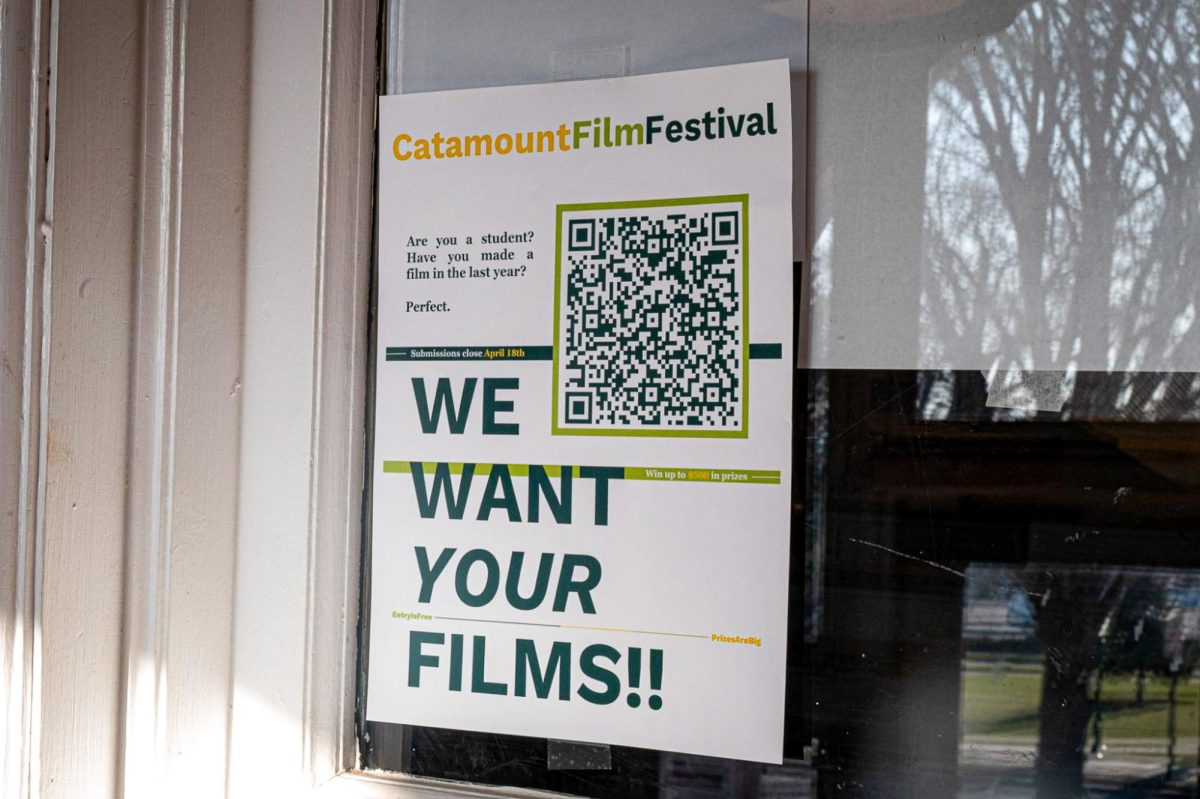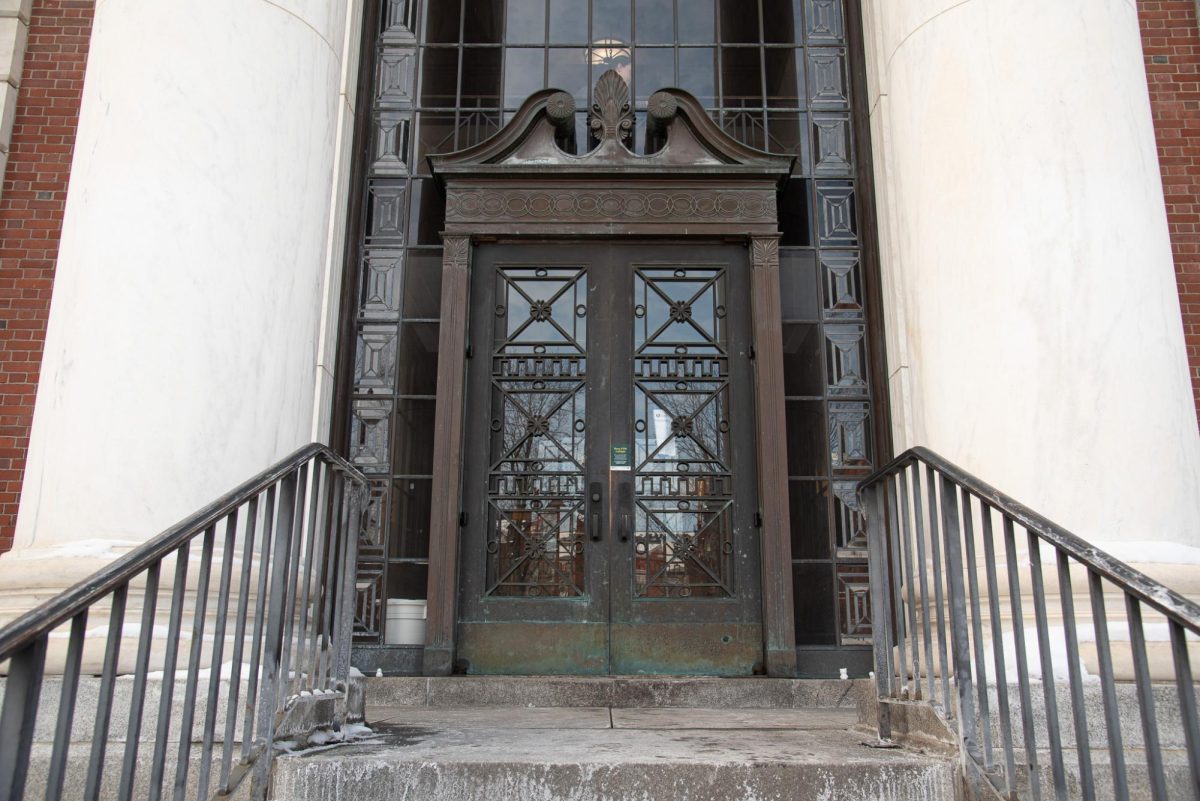My monthly credit card bill arrived at the end of January and my mother called immediately. She quickly accused me of having splurged on a new pair of Yanuks and a seasonally appropriate soft sweater – but just as I was about to reflexively confess about my tendency to shop I pointed out that I was in Burlington and sadly enough Neiman Marcus and Bloomingdale’s are nowhere within any reasonable distance of UVM or my wallet, for that matter.
Of course, my mother did not believe me and accused me of being in denial, but I was left with a very important and troubling question – could there possibly be another Dania Nasser running around spending my money? This past Friday I received a letter and then a phone call from my bank. A representative informed me that there was suspicious activity on my account. When asked what he meant by that he only said that there is an ongoing Federal investigation and my account will be frozen for at least ninety days. My credit card number as well as all the other parts of my financial status that make up my credit profile and report were stolen.
The gentleman continued to discuss the “incident” and details, such as how some unidentified clown managed to get their hands on my precious credit card and social security number while I purchased an item on a non-secure website and bought almost ten thousand dollars worth of items from fifteen states in two days.
After ten thousand dollars of spending in such a short time span, the United Nations Federal Credit Union (UNFCU), my bank of choice, finally decided that my five hundred dollar monthly limit had indeed been exceeded and that it was worthy of some form of investigation. Credit card and identify theft has become the number one crime in the US. With the growth of the internet and the new wave of online consumers seeking convenience, online theft of credit and financial information has become the number one crime, the easiest crime, and virtually the perfect crime.
The increase in spy-ware, pop-ups, viruses, and shared information all have lead to this increase in theft. It is no longer uncommon to see consumer-specific spam. For example, I often find spam mail from senders that identify my address, my full name and phone number, all personal information that was solicited and distributed online. The bank representative continued to explain the situation and some form of proceedings as well as liability laws and all the red tape associated with this misery, and then he asked if I had any questions or comments. My question was how did that thief spend ten thousand dollars? But the man misunderstood and started listing off dates and places of purchases. I interrupted and explained that when I wanted to go over my limit by a few dollars for a wonderfully chic pair of Marc Jacob boots, my card was not only declined, but I was also left to sulk in last season’s boots. But going $9,500 over the limit was fine?
The man on the phone admitted that the bank initially allowed it because the interest rates that would be collected at the end of the month were well worth the broken limit. I made it clear that I was a 19-year-old student with little self-restraint in terms of spending and there was a very good reason why I implemented a limit, which apparently was rather whimsical and useless. So who is to blame in all this? Was it my careless bank? The clever but amoral hacker? Or the internet that made me a sitting target while I shop online during study breaks and “Law and Order” commercials? As the conversation came to an end, the gentleman offered a very important piece of advice: he told me to avoid Amazon.com. He asked if I frequented the website, which I do, be it for school books or for other items like music. I had always assumed such a large warehouse (possibly the internet’s largest and most well-established) was a ‘secure’ website to place purchases with- I was very wrong. He said that suspicious activity appeared on my account after a purchase during mid-January (book buying season for non-UVM bookstore people) from Amazon.
Websites such as Amazon that tend to deal with such high volumes of internet traffic and purchases 24-hours a day are quite susceptible to a series of invaders very able to steal personal financial information. Ironically enough, just this past Thursday a speaker from the university’s consumer protection department came to a class of mine to inform all of us about the dangers, risks, and scams associated with all sorts of spending these days, so I could not claim I had never thought it a possibility. This sort of theft is increasingly difficult to catch for a variety of reasons. There is a bit of lag time from the when the card is stolen to the time someone, be it the owner of the card or the actual bank and credit card company, realizes there’s suspicious activity. When wallets or bags are stolen the owner usually realizes and is able to immediately put a hold or cancel the card before any serious charges or damages occur.
Also with electronic theft, the card number can be sold and distributed to a variety of individuals who proceed to add charges, which is what happened to my card. Clever banks are capable of catching this excessive spending and tend to send a letter of notice. There is some good news: the hacker also had access to my billing address and has not chosen to do anything with that yet. Since this incident, my bank has a better understanding of my financial profile and we have agreed that limits on cards and withdrawals are not optional but should be enforced at all times.
In addition, my new credit card will not be processed at non-secure websites because of a new verification number that will serve as an additional security measure. Visa credit cards have an option of becoming verified for security purposes. It is costless and can be done by phone, or online.
Despite this episode, I most likely will not rid myself of the convenience of a credit card any time soon, but what I considered responsible behavior is far more than just paying my bill every month and spending within my means – it is now mandatory to carefully monitor transactions as well as personal credit reports to ensure that any shady activity on the account is my doing and not someone else’s.
For more information on credit reports and consumerism protection: http://sec.gov and www.privacyrights.org/consumer











